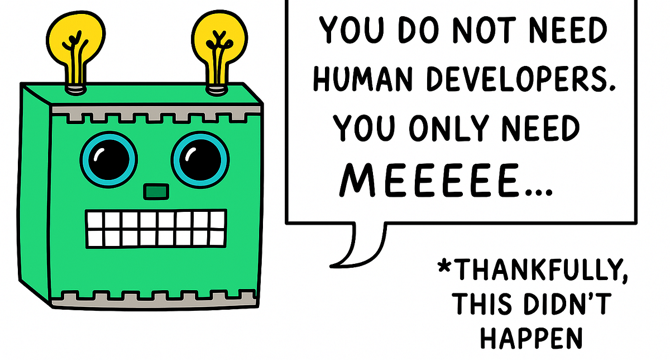Medium
2d
374

Image Credit: Medium
Developers vs. AI Agents: Who Owns the Workflow Now?
- Agentic AI is becoming popular in developer platforms, aiming to streamline tasks and enhance productivity for developers.
- Developer portals have emerged to centralize and coordinate complex workflows, reducing friction and enhancing efficiency for developers.
- Agentic AI acts as a partner to developers, assisting in task completion and reducing cognitive load, rather than replacing them.
- Developer portals integrate services, APIs, knowledge bases, and more, offering streamlined workflow actions and enforcement of standards.
- Agentic AI provides initiative, context, and continuity in completing tasks, shifting towards operational efficiency and useful outcomes.
- AI agents embedded in developer portals offer dynamic orchestration, surfacing relevant information, automating decisions, and adapting to workflows.
- Examples like Google's Jules and OpenAI's Codex showcase agentic AI in automating operational tasks and code generation, respectively.
- Agentic AI aims to support developers by automating mundane tasks while maintaining developer control and enhancing collaboration.
- The integration of agentic AI in developer portals requires a thoughtful and iterative approach to reduce friction and build trust.
- Product teams are advised to start small, focus on modularity, ensure integration, and treat AI agents as living components for long-term value extraction.
Read Full Article
22 Likes
For uninterrupted reading, download the app